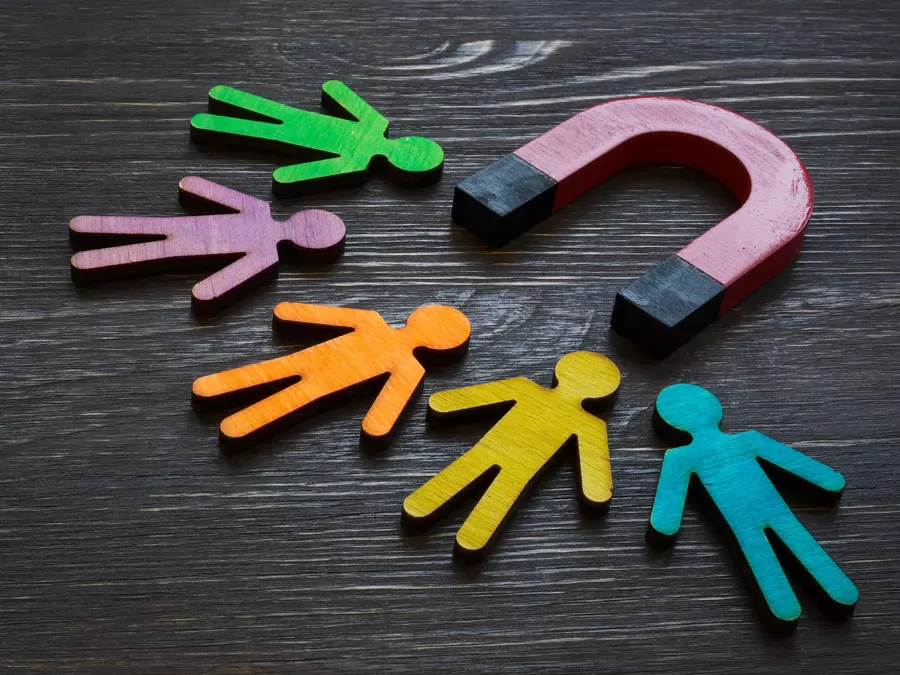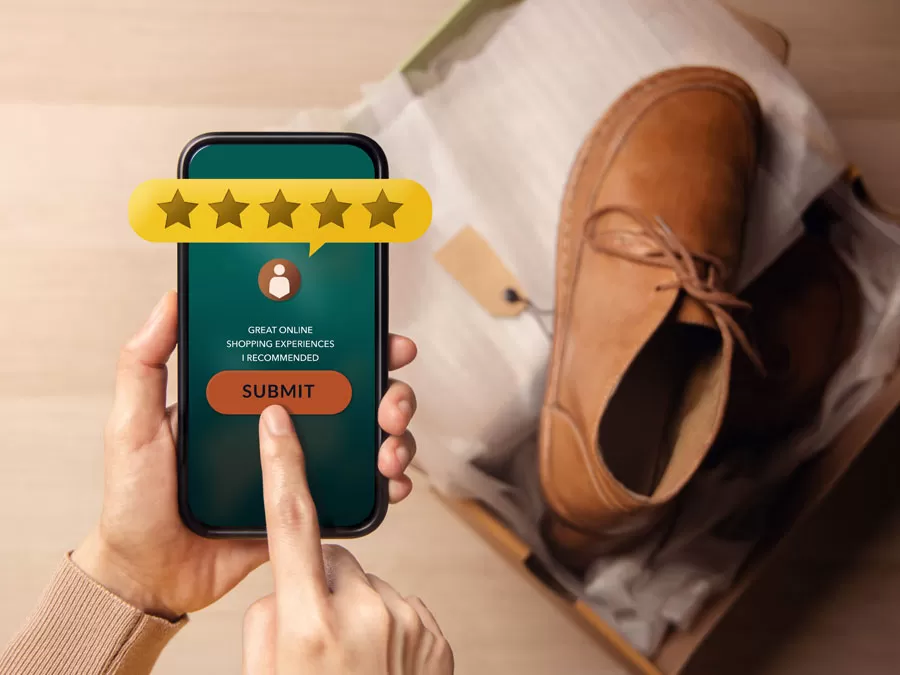The need to measure customer satisfaction leads to conversations about customer loyalty. Here are some buzzwords that go with it.
As a business owner, your ultimate goal is to cultivate customer loyalty. Generally, this comes after you measure customer satisfaction. Customers have endless options, though, which is why it’s crucial to understand the key buzzwords that drive this loyalty.
Today, we will look into five essential customer loyalty buzzwords that you should be familiar with. If these concepts are your customer retention programs, you can easily build a loyal customer base.
1. Personalization
Personalization is a powerful tool for bringing out customer loyalty. Customers appreciate when your business understands their unique preferences and individual needs. In fact, these days, using customer information to create personalized experiences has become the norm.
More specifically, customer data analysis and segmentation reveals insights into customer behaviors, preferences, and purchase history. This knowledge empowers you to measure customer satisfaction, deliver targeted offers and recommendations for each customer.
To implement personalization effectively, consider investing in customer relationship management (CRM) systems that enable you to store and analyze data. Use this information to customize your marketing campaigns, recommend relevant products or services, personalize communication channels, and measure customer satisfaction.
2. Multichannel
Customers prefer to interact with your business through multiple channels, both online and offline. A multichannel approach, then, provides an integrated customer experience across all these touchpoints. After all, customers expect consistency and continuity throughout their journey, regardless of the channels they use.
Basically, an effective multichannel strategy means that customers can transition effortlessly between channels without compromising the brand experience. Incidentally, this strategy can also be integrated into your customer retention programs.
To embrace a multichannel approach, you need to invest in technology and infrastructure that supports a superb customer journey. This includes having a responsive website, engaging social media presence, mobile apps, and physical store experiences. Also, integration of data across these channels are vital to ensure a unified customer experience.
3. Advocacy
Customer advocacy is a powerful driver of customer loyalty. When customers become advocates for your brand, they actively promote and recommend your products or services to others. These brand advocates become trusted influencers that boost your brand reputation.
Creating a community of loyal customers who advocate for your brand is invaluable, especially in today’s social media-driven landscape. If you measure customer satisfaction regularly, having a community of loyal customers is how you know your strategies are working.
To promote customer advocacy, focus on building strong relationships with your customers. Encourage customers to share their positive experiences through user-generated content, such as customer reviews, testimonials, and social media posts.
Aside from your customer retention programs, implement referral programs that incentivize customers to pull in friends and family. In doing so, you amplify the reach and impact of your brand, driving customer loyalty and attracting new customers.
4. Engagement
Customer engagement, meanwhile, measures the level of interaction and emotional connection between your brand and your customers. Engaged customers are more likely to remain loyal, make repeat purchases, and actively support your brand.
Building customer engagement means creating meaningful and interactive experiences where customers can share their opinions. Remember that engagement should be an important step of your customer retention programs.
To secure engagement, consider introducing content such as quizzes, polls, contests, and interactive campaigns. These initiatives encourage customers to engage with your brand and provide valuable feedback. In addition, it will help you measure customer satisfaction by looking at how they respond to your content.
Also, leverage social media platforms to create a sense of community and engage in conversations with your customers. Finally, respond promptly to customer inquiries, comments, and concerns.
5. Retention
Customer retention focuses on retaining existing customers and minimizing churn. While acquiring new customers is important, retaining existing ones is equally crucial. In other words, if you want to measure customer satisfaction and loyalty, look at how your existing customers reach out to you.
Retaining customers is more cost-effective than acquiring new ones, and loyal customers tend to spend more and refer others. Therefore, strategies that improve customer retention and satisfaction are key to building customer loyalty.
To ensure customer retention, prioritize delivering exceptional customer service and support. In particular, provide timely and efficient resolution of customer issues. Implement loyalty programs that reward customers for their repeat business. For example, exclusive discounts, personalized offers, or access to VIP events can help retain loyal customers.
Achieve Customer Loyalty Easier Through Outsourcing
Outsourcing customer support is a move that can lead to customer loyalty and long-term business success. When done right, outsourcing gives your business specialized expertise without losing focus on core competencies.
Let’s explore how outsourcing customer support leads to enhanced customer loyalty:
-
24/7 Availability
It is true that customer issues and inquiries don’t always come up during regular business hours. However, customers still appreciate having support available whenever they need it.
So, by offering 24/7 customer support, your business gets to measure customer satisfaction and, subsequently, increase customer loyalty. Valuing your customers’ time and needs, brings out this trust and reliability.
-
Scalability and Flexibility
During peak seasons or promotional periods, customer service needs may increase substantially. As such, you need to outsource some support to keep up.
Outsourcing partners can quickly adapt to fluctuations in demand and provide the resources without you having to invest in additional personnel. As a result, customers receive timely support, leading to increased satisfaction and loyalty.
-
Specialized Expertise
Through outsourcing, your business can tap into a team of experts with deep knowledge and experience in customer service. More specifically, these professionals are well-trained in handling various customer inquiries, complaints, and issues effectively.
With the accurate and efficient resolutions they provide, the overall customer experience improves. In addition, their commitment to addressing customers’ needs competently motivates people to stay true to your brand.
-
Multichannel Support
As previously mentioned, customers expect support across various communication channels, including phone, email, live chat, and social media. Unfortunately, meeting these expectations can be challenging for your business if you don’t have the right resources.
Outsourcing partners are equipped with multichannel support capabilities, enabling continuous interactions with customers. This approach emphasizes customer convenience and accessibility, which are crucial factors in building loyalty.
-
Language and Cultural Adaptation
Outsourcing customer support also gives your business access to agents who are fluent in multiple languages. If you want to measure customer satisfaction in global markets or serve a diverse customer base, this is a huge advantage.
Customers feel more comfortable and valued when they can communicate in their native language. Even more so when support agents understand their cultural context. Simply put, this cultural adaptation leads to a heightened sense of loyalty and appreciation for your brand.
-
Focus on Core Competencies
Customer support is undoubtedly essential, but it can be resource-intensive and distract you from other critical business functions. But through outsourcing, you can focus on your core competencies and initiatives.
With customer support now in the hands of experts, your business can dedicate more time for product development, marketing, and innovation. These aspects can also lead to improvements in the overall customer experience and, ultimately, higher customer loyalty.
-
Cost Savings
Hiring and training in-house support teams can be expensive, especially for small and medium-sized enterprises. Outsourcing, however, can take care of customer support without having to include additional personnel under your payroll.
Through cost-effective support solutions, your business can choose plans that align with your budget and requirements. As a result, you can reinvest your savings in enhancing the customer experience and driving customer loyalty.
Summary
Incorporating these five customer loyalty buzzwords into your business will empower you to measure customer satisfaction and build long-term loyalty. Personalization, multichannel experiences, advocacy, engagement, and retention are vital components for success in this regard.
Through the right technologies, customer relationships, and exceptional experiences, you can differentiate your brand and thrive amongst the competition. Embrace these buzzwords, and watch your business soar to new heights of success.
Customer loyalty is such a good thing to have that businesses do whatever it takes to secure it from their customers. But of course, this part of business is better done with the help of an outsourcing partner like Open Access BPO.
Open Access BPO specializes in multichannel customer support that’s available in more than 30 languages. Our diverse pool of agents are capable of listening to customers with empathy and deliver effective solutions at the same time. Plus, our agents are flexible and coachable enough to consider your business’ and your customers’ needs.
Contact Open Access BPO today to begin your partnership with us.
Customer loyalty is a timeless concept. Despite a rapidly changing business landscape, it will continue to be one of the most crucial goals of all enterprises.
Unfortunately, it’s also the most elusive.
As a brand, your ultimate goal is to cultivate customer loyalty. Measure customer satisfaction to ensure this. These days, customers have endless options, which is why it’s crucial to understand the key buzzwords that drive customer loyalty.
Today, let’s delve into essential customer loyalty buzzwords that every business owner should be familiar with. By incorporating these concepts into your customer retention programs and engagement strategies, you can establish a loyal customer base that not only continues to choose your brand but also becomes advocates for it.
-
Personalization
Personalization is a powerful tool for fostering customer loyalty. Customers appreciate when businesses understand their unique preferences and cater to their individual needs. In today’s data-driven world, leveraging customer information to create personalized experiences has become increasingly important.
By analyzing customer data and segmentation, you can gain insights into customer behaviors, preferences, and purchase history. This knowledge empowers you to measure customer satisfaction, deliver targeted offers, recommendations, and communications that resonate with each customer.
Personalization creates a sense of connection and enhances customer loyalty by making customers feel understood and valued.
To implement personalization effectively, consider investing in customer relationship management (CRM) systems that enable you to store and analyze customer data. Use this information to tailor your marketing campaigns, recommend relevant products or services, personalize communication channels, and eventually measure customer satisfaction.
By delivering personalized experiences, you can strengthen customer loyalty and differentiate your brand from competitors. It also highlights your commitment to your customer retention programs.
-
Multichannel
Customers interact with businesses through multiple channels, both online and offline. A multichannel approach involves providing a seamless and integrated customer experience across all these touchpoints. Customers expect consistency and continuity throughout their journey, regardless of the channels they use.
An effective multichannel strategy ensures that customers can transition effortlessly between channels while receiving a consistent brand experience. This strategy can also be integrated into your customer retention programs.
To embrace a multichannel approach, you need to invest in technology and infrastructure that supports a seamless customer journey and will measure customer satisfaction. This includes having a responsive website, engaging social media presence, mobile applications, and physical store experiences that align with your brand image.
Integration and synchronization of data across these channels are vital to ensure a unified customer experience. By offering a seamless multichannel experience, you enhance customer satisfaction and loyalty by providing convenience and accessibility. Truly, a multichannel approach can enhance your customer retention programs.
-
Advocacy
Customer advocacy is a powerful driver of customer loyalty. When customers become advocates for your brand, they actively promote and recommend your products or services to others. These brand advocates serve as trusted influencers, helping to expand your customer base and boost brand reputation.
Creating a community of loyal customers who advocate for your brand is invaluable in today’s social media-driven landscape. If you measure customer satisfaction regularly, having a community of loyal customers is how you know your customer retention programs are working.
To foster customer advocacy, focus on building strong relationships with your customers. Provide exceptional customer experiences that exceed expectations at every touchpoint through effective customer retention programs.
Encourage customers to share their positive experiences through user-generated content, such as customer reviews, testimonials, and social media posts.
Aside from your customer retention programs, implement referral programs that incentivize customers to refer friends and family. By nurturing customer advocacy, you amplify the reach and impact of your brand, driving customer loyalty and attracting new customers.
-
Engagement
Customer engagement measures the level of interaction and emotional connection between your brand and your customers. Engaged customers are more likely to remain loyal, make repeat purchases, and actively support your brand.
Building customer engagement requires creating meaningful and interactive experiences that encourage customers to actively participate and share their opinions. Remember that engagement is an important step of your customer retention programs.
Before getting to your customer retention programs, consider implementing interactive content and experiences, such as quizzes, polls, contests, and interactive campaigns. These initiatives encourage customers to engage with your brand and provide valuable feedback. This will also help you measure customer satisfaction by looking at how they respond to your content.
Leverage social media platforms to measure customer satisfaction, create a sense of community, and engage in conversations with your customers. Respond promptly to customer inquiries, comments, and concerns. By building strong engagement, you deepen customer loyalty and forge long-lasting relationships.
-
Retention
Customer retention focuses on retaining existing customers and minimizing churn. Acquiring new customers is important, but retaining existing ones is equally crucial for long-term success. If you want to measure customer satisfaction, look at how your existing customers reach out to you.
Retaining customers is more cost-effective than acquiring new ones, and loyal customers tend to spend more and refer others. Therefore, implementing strategies to improve customer retention programs and measure customer satisfaction is key to building customer loyalty.
To enhance customer retention, prioritize delivering exceptional customer service and support. Provide timely and efficient resolution of customer issues, measure customer satisfaction, and strive to exceed customer expectations through your customer retention programs. Implement loyalty programs that reward customers for their repeat business.
Offer exclusive discounts, personalized offers, or access to VIP events to reward and retain loyal customers. Through customer retention programs, you create a loyal customer base that drives sustainable growth for your business. And if you measure customer satisfaction, you will then realize how valuable customer retention programs are in maintaining business success.
-
Relationship Marketing
Relationship marketing is an approach that centers on fostering enduring connections with customers, with a primary focus on nurturing these relationships over individual transactions. Its core tenet is to measure customer satisfaction by gauging the quality of interactions and experiences customers have with the brand.
This approach transcends one-off interactions, prioritizing the establishment of emotional ties and reciprocal value-sharing between the brand and its customers. Relationship marketing also involves employing strategies that aim to comprehensively understand customer preferences, behaviors, and needs to deliver tailored experiences and offerings. It focuses on three principles:
- customer loyalty
- customer retention
- long-term customer engagement
To attain these, companies ensure that their services meet customers’ standards. This lets them create lasting relationships and gradually transform buyers into word-of-mouth marketers.
When creating a marketing strategy, many brands compare relationship marketing with transactional marketing to determine the instances when they must be applied. The latter, however, focuses on optimizing single transactions, resulting to short-term relationships.
Brands with Successful Customer Loyalty Campaigns
Several brands that measure customer satisfaction have successfully achieved customer loyalty through their well-executed campaigns and customer retention programs. These brands have understood the importance of building strong relationships with their customers and have implemented strategies to cultivate loyalty. Let’s explore some examples:
-
Apple
Apple is renowned for its customer loyalty, which is a result of its consistent focus on creating exceptional products and providing an outstanding customer experience.
Through its sleek designs, innovative features, and user-friendly interfaces, Apple has built a dedicated following of loyal customers who eagerly await each new product release. Apple’s commitment to customer satisfaction is evident through its customer support and service, which further strengthens the bond with its customers.
-
Starbucks
Starbucks has successfully created a loyal customer base through its focus on personalized experiences and creating a sense of community via customer retention programs. The company encourages people to become members of its customer loyalty rewards program, offering exclusive benefits and personalized offers based on individual preferences.
Starbucks also creates a welcoming atmosphere in its stores, fostering a sense of belonging for customers. Through initiatives like seasonal promotions, limited-time beverages, and social responsibility campaigns, Starbucks keeps customers engaged and loyal.
-
Amazon
Amazon has revolutionized the e-commerce industry and earned customer loyalty through its exceptional convenience and personalized recommendations which are part of its customer retention programs. The company offers fast and reliable delivery, hassle-free returns, and a vast selection of products.
Amazon’s personalized recommendations based on customers’ browsing and purchase history make the shopping experience highly tailored. Additionally, the Amazon Prime subscription service provides exclusive benefits, such as free shipping and access to streaming services, which further incentivize customer loyalty.
-
Nike
Nike has built a loyal customer base through its strong brand identity and emotional connections. The company’s marketing campaigns often focus on inspiring stories, empowering athletes, and promoting a sense of achievement.
Nike’s dedication to quality, innovative designs, and high-performance products has earned the trust and loyalty of customers who identify with the brand’s values and aspirations.
-
Zappos
Zappos, an online shoe and clothing retailer, has gained a reputation for exceptional customer service. The company goes above and beyond to create a positive customer experience by offering free shipping, a generous return policy, and 24/7 customer support.
Zappos focuses on building relationships with its customers through its customer retention programs, emphasizing personal connections and ensuring customer satisfaction at every touchpoint. This dedication to service has resulted in a loyal customer base that values the brand’s commitment to their happiness.
These examples demonstrate how brands can achieve customer loyalty through various customer retention programs, including exceptional product quality, personalized experiences, community-building, convenience, emotional connections, and outstanding customer service.
By consistently delivering on these fronts and a commitment to measure customer satisfaction, these brands have created a strong bond with their customers, fostering loyalty and advocacy that goes beyond mere transactions.
Achieve Customer Loyalty Easier Through Outsourcing
Outsourcing customer support is a strategic move that significantly contributes to customer loyalty and long-term business success. When done right, outsourcing allows businesses to tap into specialized expertise, access advanced technologies, measure customer satisfaction, and focus on core competencies while delivering excellent customer service.
Here’s how outsourcing customer support leads to enhanced customer loyalty and satisfaction, including through customer retention programs.
-
24/7 Availability
Outsourcing customer support enables businesses to provide round-the-clock service to their customers. Customer issues and inquiries don’t always arise during regular business hours, and customers appreciate having support available whenever they need it.
By offering 24/7 customer support, businesses can measure customer satisfaction consistently and increase customer loyalty by demonstrating that they value their customers’ time and needs, fostering trust and reliability.
-
Scalability and Flexibility
Outsourcing customer support allows businesses to scale their operations based on demand. During peak seasons or promotional periods, customer service needs may increase substantially.
Outsourcing partners can quickly adapt to these fluctuations and provide the necessary resources without businesses having to invest in additional infrastructure or personnel. This flexibility ensures that customers receive timely support, leading to increased satisfaction and loyalty.
-
Specialized Expertise
Outsourcing customer support to a specialized partner means that businesses can tap into a team of experts with deep knowledge and experience in customer service and customer retention programs. These professionals are well-trained in handling various customer inquiries, complaints, and issues effectively.
By providing accurate and efficient resolutions, they enhance the overall customer experience and foster loyalty by demonstrating a commitment to addressing customers’ needs competently.
-
Multichannel Support
In today’s digital landscape, customers expect support across various communication channels, including phone, email, live chat, and social media. Meeting these expectations can be challenging for businesses without the right resources.
Outsourcing partners are equipped with multichannel support capabilities, enabling seamless interactions with customers regardless of their preferred communication channel. This multichannel approach enhances customer convenience and accessibility, which are crucial factors in building loyalty.
-
Language and Cultural Adaptation
Outsourcing customer support can provide businesses with access to agents who are fluent in multiple languages and well-versed in diverse cultural norms. This advantage is particularly beneficial for companies who want to measure customer satisfaction in global markets or those who are serving a diverse customer base.
Customers feel more comfortable and valued when they can communicate in their native language and when support agents understand their cultural context. This cultural adaptation leads to higher customer satisfaction and fosters a sense of loyalty and appreciation for the brand.
-
Efficient Ticket Management
Outsourcing partners often utilize advanced ticketing and case management systems to track and resolve customer inquiries efficiently. These systems help streamline the support process, ensuring that no customer query falls through the cracks and that issues are resolved promptly.
Efficient ticket management boosts customer satisfaction and loyalty by minimizing response times and providing swift resolutions to problems. Businesses that measure customer satisfaction will also benefit from efficient ticket management.
-
Focus on Core Competencies
Outsourcing customer support allows businesses to focus on their core competencies and strategic initiatives. Customer support is undoubtedly essential, but it can be resource-intensive and distract from other critical business functions.
By outsourcing this aspect of the business, companies can dedicate more time and resources to product development, marketing, and innovation, which can lead to improvements in the overall customer experience and, ultimately, higher customer loyalty.
-
Cost Savings
Outsourcing customer support can lead to cost savings for businesses. Hiring and training in-house support teams can be expensive, especially for small and medium-sized enterprises (SMEs).
Outsourcing provides access to cost-effective support solutions, as businesses can choose plans that align with their budget and requirements. These cost savings can be reinvested in enhancing the customer experience through loyalty programs, improved products, or more extensive marketing efforts, further driving customer loyalty.
-
Continuous Improvement
Outsourcing partners often have robust quality assurance processes in place to measure customer satisfaction and monitor and improve customer support performance continually. They collect data, analyze customer interactions, and identify areas for improvement.
This commitment to continuous improvement results in a higher level of service delivery and customer satisfaction. By partnering with an outsourcing provider, businesses can benefit from these insights, measure customer satisfaction, and enhance their customer support operations, ultimately fostering loyalty.
Incorporating these five customer loyalty buzzwords into your business strategies will empower you to measure customer satisfaction, build strong customer relationships and foster long-term loyalty. Personalization, multichannel experiences, advocacy, engagement, and retention are vital components of a successful customer loyalty strategy.
By investing in the right technologies, nurturing customer relationships, and delivering exceptional experiences, you can differentiate your brand, measure customer satisfaction, maximize customer loyalty, and thrive in today’s competitive market. Embrace these buzzwords, and watch your business soar to new heights of success.
Customer loyalty is such a good thing to have that businesses do whatever it takes to secure it from their customers. But of course, this part of business is better done with the help of an outsourcing partner like Open Access BPO.
Open Access BPO specializes in multichannel customer support that’s available in more than 30 languages. Our diverse pool of agents are capable of listening to customers with empathy and deliver effective solutions at the same time. It doesn’t matter what industry you belong to, as our agents are flexible and coachable enough to consider your business’ and your customers’ needs.
Contact Open Access BPO today to begin our partnership.















